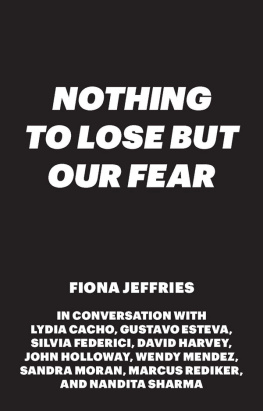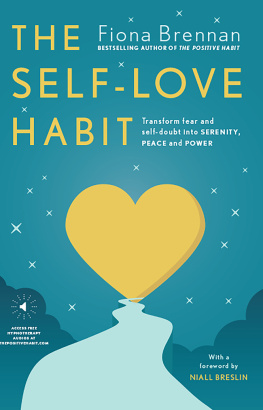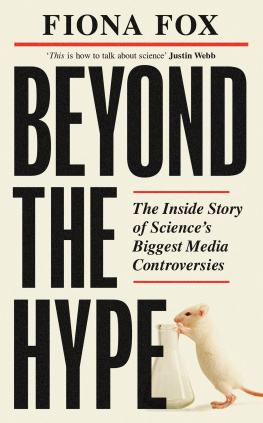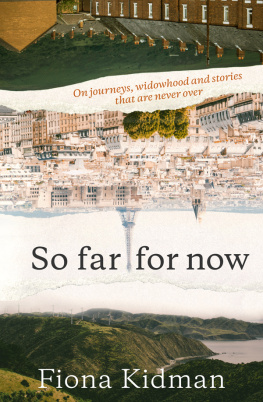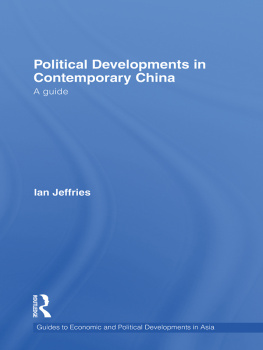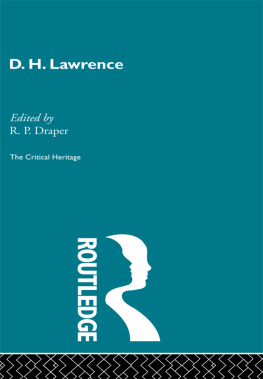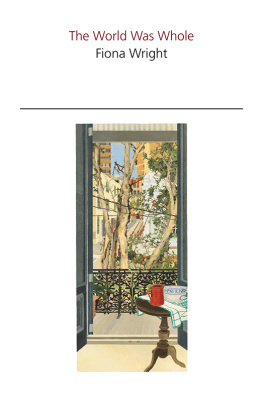About the author
Fiona Jeffries is a Vancouver-based researcher, writer, educator and currently a visiting scholar at the Center for Policy Studies in Culture and Communities at Simon Fraser University. Her work focuses on the multiple expressions of contestation to the globalization of fear, particularly in spaces of migration and border crossing, in cities recovering from civil war, and in spaces of tourist development and ecological degradation. She has published extensively in both academic and journalistic venues, focusing on feminist politics, media and gender violence, urban social movements, and the role of communication practices in the production of alternative globalizations.
NOTHING
TO LOSE BUT
OUR FEAR
FIONA JEFFRIES
IN CONVERSATION WITH
LYDIA CACHO, GUSTAVO ESTEVA,
SILVIA FEDERICI, DAVID HARVEY,
JOHN HOLLOWAY, WENDY MENDEZ,
SANDRA MORAN, MARCUS DEDIKER,
AND NANDITA SHARMA
Zed Books
London
Nothing to Lose but Our Fear was first published in 2015 by Zed Books Ltd, 7 Cynthia Street, London N1 9JF, UK
This ebook edition was first published in 2015
www.zedbooks.co.uk
Copyright Fiona Jeffries 2015
The right of Fiona Jeffries to be identified as the author of this work has been asserted by her in accordance with the Copyright, Designs and Patents Act, 1988
Cover designed by Dougal Burgess
All rights reserved. No part of this publication may be reproduced, stored in a retrieval system or transmitted in any form or by any means, electronic, mechanical, photocopying or otherwise, without the prior permission of Zed Books Ltd.
A catalogue record for this book is available from the British Library
ISBN 978-1-78360-415-9 hb
ISBN 978-1-78360-414-2 pb
ISBN 978-1-78360-416-6 pdf
ISBN 978-1-78360-417-3 epub
ISBN 978-1-78360-418-0 pdf
To my parents
CONTENTS
by Fiona Jeffries
Practicing
ACKNOWLEDGEMENTS
Like a book, conversation is irrepressibly social, and, for me at least, one of lifes supreme joys. Although not every conversation has a resolution in the end, almost any dialogue is energized with the sense of possibility, clarification, and discovery. Conversation helps us work through problemsthink anew. It is habitually cited as a tonic for loneliness, anxiety, depression, and despair. This book tries to bring the social and collective character of thinking about and challenging a world awash in fear into sharp, if imperfect and always unfolding, relief.
First off, I would like to shower unreserved thanks on the people who made this book possible: those willing conversationalists you will meet in these pages who set aside considerable time and energy in order to engage in these discussions. Soon after I began this project, I made a decision to carry out these dialogues with people whose work does not directly pivot around fear itself, and my co-conversationalists greeted this challenge with verve, solemnity, and great generosity.
I would need another volume, which I dont have, to sufficiently acknowledge the many people who provided me with an inordinate amount of concrete support, joyful encouragement, and bracing criticism. Pablo Mendez, Zoe Druick, and Barbara Pulling spent countless hours talking through the questions and concerns woven through these pages. Pablos input at every stage of this project was immeasurable, and I cannot thank him enough for his seriousness and loving generosity. Mike Ma, Kirsten McAllister, Samir Gandesha, Yuezhi Zhao, and Dorothy Kidd have all been immensely supportive in innumerable ways. Dorothy Christian, Jules Boycoff, Saskia Sassen, and Alex Rivera offered invaluable space and time to grapple with core questions.
I researched and carried out several of these conversations while I was a visiting scholar at the Center for Place, Culture and Politics at the City University of New York Graduate Center. David Harvey, Neil Smith, Padmini Biswas, Mary Taylor, Jenna Loyd, Malav Kanuga, Tatiana Schor, and the other fellows at the Center ensured my time at CUNY was intellectually electrifying. The exemplary open-heartedness, social generosity, and political commitments of Silvia Federici and George Caffentzis nourished me daily. A scholarship from the Social Sciences and Humanities Research Council of Canada enabled me to live, pay the rent, and learn more than I could have imagined.
Warm and heartfelt thanks to my Mum (Diane) and Bill, my sisters Diana, Sandra, and Catriona, and to Kate, Sally, Marty, and Thomas. Much appreciation to Lew, Carla, Kestrel, Maryann, Eric, Harold, Louise, Steve, Carmen, Julie, Fen, Sharla, Andrew, Winnie, Janeth, Nandi, Gaye, John, TJ, Ruth, Harjap, and Shannon for sustaining the friendship commons. I cant imagine the world without this collectivity of conversationalists!
Much gratitude to Jessie Hale for her thoughtful and patient editing, and to Amanda Crocker, who is not only an impressive and super-competent editor, but, like everyone else Ive encountered at Between the Lines, a confidence-inspiring delight to work with and a heartening exemplar of what committed independent publishing looks, feels, and acts like.
INTRODUCTION
T HE CONVERSATIONS featured in this book took place over a period of intense planetary upheaval. I started to conduct interviews for this project in 2007, amid the first stirrings of what turned out to be a global financial crisis. The Wall Street meltdown of the following year spread out rapidly to all continents, injecting a blast of hot fear and anxiety into a world already reeling from the disorienting grind of neoliberal excising, roiling wars, and spirals of depressive disaffection and violent dispossession. In response to the crisis, governments began to impose a new round of punishing austerity, unleashing major rollbacks in social spending and protections but also dramatically increasing expenditures on weaponized public safety. This global drift into neoliberal security has been deftly exploited by right-wing political entrepreneurs, who have sought to profit from the generalized climate of anxiety by seizing upon peoples proliferating fears: the fear of loss of status and national pride, of unemployment and homelessness, and more generally of a future becoming inexorably foreclosed. In Greece and the United States, as in many other places, a resurgent right has sought to present itself as a heroic camp of rebels fighting an unjust order, harnessing popular fears by viciously scapegoating anyone who could be recast as the dangerous source of popular misery. But starting in 2010, mass protests against authoritarianism and manufactured scarcity began to rumble across the aggrieved streets and plazas of Tunis, Cairo, Athens, Madrid, Hong Kong, New York City, Toronto, Istanbul, Mexico City, and many other places, and have since continued to unfold across the world. As these uprisings gather momentum, a systemic critique of the use of fear as a tool of social control has grown louder and louder. Have ordinary people lost their fear?
One answer to this question is suggested by the mainstream and alternative news coverage of the early days of the uprising against Egypts authoritarian neoliberal state in 2011. In clip after clip featuring the protesters gathered in Cairos Tahrir Square, one can hear women and men of all ages characterize their presence in the streets and the square in terms of a popular victory over fear. The wall of fear came down! protesters repeatedly exclaimed. And while the scale of these new uprisings may be unprecedented, the sentiment is not unique to our historical moment. We may be living through a revolutionary epoch, but in the long and tumultuous history of political resistance to arbitrary power, these periods of popular outpouring become again and again witness to the wall of fear toppling down.


